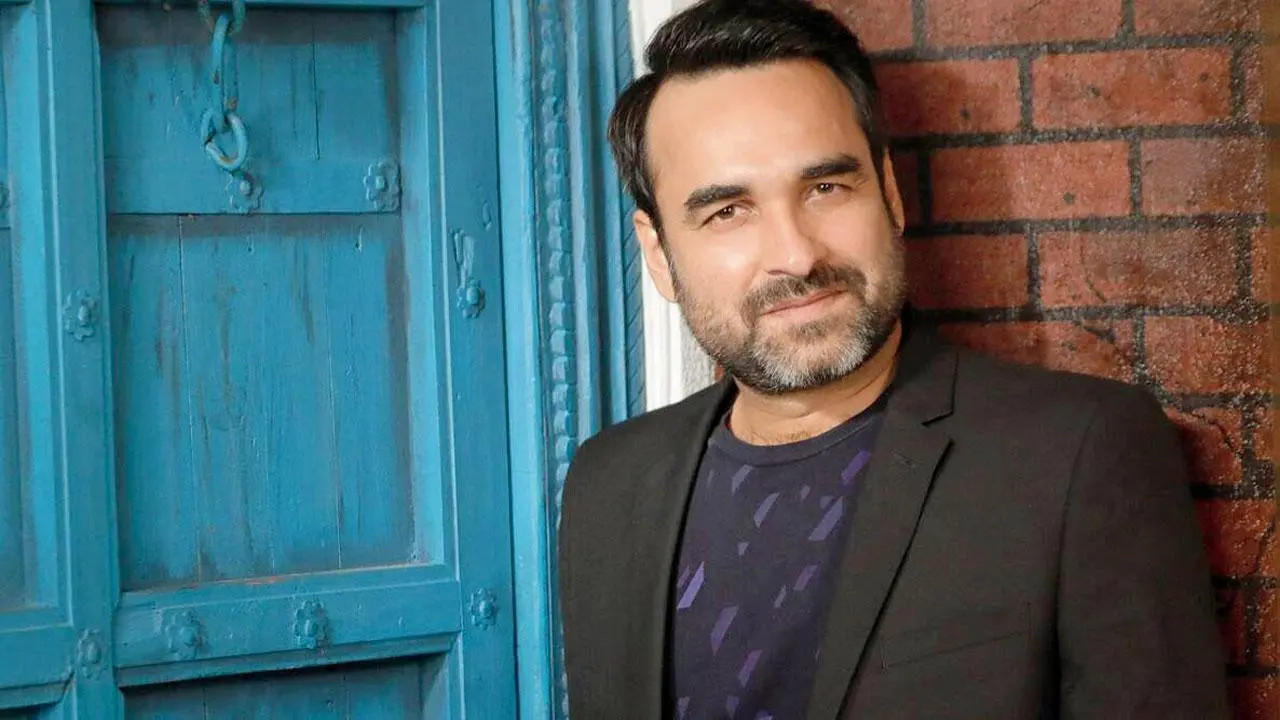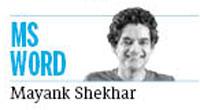Future of stardom might well be people who connect in real life as much as through the work they do

If he wasn’t a star, Tripathi Ji would’ve been perfectly fine being an actor doing roles on the small screen, and smaller parts in films. Pic/Twitter
 Actor Pankaj Tripathi is a fan of online videos of an IAS coaching school called Drishti, run by one Dr Vikas Divyakriti, who lectures aspirants on various aspects of General Studies, an essential paper to qualify for the civil services.
Actor Pankaj Tripathi is a fan of online videos of an IAS coaching school called Drishti, run by one Dr Vikas Divyakriti, who lectures aspirants on various aspects of General Studies, an essential paper to qualify for the civil services.
ADVERTISEMENT
While Tripathi Ji, 46, is too old to sit for the UPSC exam, he studiously follows these videos, not just for the lessons, but to observe the body language of the lecturers; something that could add to his own realistic performances on screen.
I’m a huge fan of Tripathi Ji’s interviews online, on the other hand, which is a rabbit hole of hours after hours on YouTube, viewed in millions—from even before Tripathi Ji became a legit movie and OTT star.
And it’s one that you emerge from feeling slightly positive and strangely enlightened, although it’s hard to figure exactly why.
Actors’ journeys are usually encapsulated through hardships faced. Given the person must luckily break into a field that has no quantifiable entrance test—facing enough humiliation along the way, with no money, and on occasion, no place to stay. Every outsider, it appears, has either slept on Marine Drive or Andheri station, and came to showbiz-city with 100 bucks in his pocket.
Millions in India go through the same adversities. That is because they have no choice, it’s common man’s majboori. Those who do it for the love of a profession, signify passion, and therefore considered better stories.
But Tripathi Ji doesn’t focus on his struggles, or even his acting prep so much. He did arrive in Bombay Central station—after graduating from Delhi’s National School of Drama (NSD)—along with his bartan, books, and wife. His wife, Mridula, took up a teaching job for a regular salary to sufficiently subsidise Tripathi Ji’s creative pursuits.
If he wasn’t an actor, it seems Tripathi Ji would’ve been happy being a farmer in his village—only that his family couldn’t afford a tractor, and so he moved to Patna.
If he wasn’t a star, he would’ve been perfectly fine being an actor doing roles on the small screen, and smaller parts in films—a sustainable income was his goal anyway. This is quite along the lines of Amitabh Bachchan’s life-mantra: “Mann ka ho toh accha, nah ho toh aur bhi accha (Good, if things go your way; even better, if they don’t).”
Before he got into NSD (in his third attempt), Tripathi Ji was an assistant chef at Patna’s popular Maurya Hotel. He finds the chef’s job quite similar to an actor’s, wherein you first visualise the final product, and then start adding ingredients in measured quantities to achieve it.
Also, Tripathi Ji has always been a natural “vakta” (orator), which drew him first to student politics, mobilising public for rallies, etc. He realised the core job in professional politics is to blindly align and suck up to superiors, in order to get ahead.
He could still join politics someday; never say never. Currently he employs his verbal skills to improvise on the set, some superb lines for his characters on screen. He’d just made up a funny one on passport and Vasco Da Gama for a film, when I met him last.
On the Internet, is he a modern-day guru of sorts, like his role in Sacred Games? Nope. The pravachans aren’t in-your-face, in the way, say, actor Annu Kapoor’s are. Kapoor can answer for hours, when no question has been asked!
Tripathi Ji once met a rich guy on a flight, whose kid had taken off with friends on a low-budget Bharat darshan. Because? They’d heard him casually say in an interview that inexpensive travel is the best way to find oneself. Who else from showbiz has a profounder cultural impact through his interviews?
An equally well-read Shah Rukh Khan (SRK), hands down. Harvard-trained Shrayana Bhattacharya has written an illuminating, award-winning book, Desperately Seeking Shah Rukh, intersecting gender, economics and cinema, based so much on SRK’s interviews alone.
Tripathi Ji’s words in pure, quasi poetic Hindi have a similar free-flow, where he often breaks into tears, talking about his wife, or even the death of Ustad Bismillah Khan. He inevitably goes off on a tangent, patiently mining nostalgia of agrarian, rural life, before returning to the interviewer, “Sorry what was your question again? I forgot!”
The other day Tripathi Ji had a thought in his head that he could use in an interview, and then he instantly corrected himself. It’d be fake to plot these things, when he’s had so many mazedaar life experiences anyway. It’s best to remain unpretentiously in character; but hardest, too.
This is what we mean when we say we love a particular public figure. As it is, in the fame game, actors no more compete only with other actors on screen.
Because, practically everyone is on the screen anyway—YouTube, TikTok, Insta, Facebook… And how/who you come across as then defines your stardom in a showbiz sense, more than simply the work you do. This is why, everywhere I hear people go, “Totally love Pankaj Tripathi yaar. Mast aadmi hai!”
Mayank Shekhar attempts to make sense of mass culture. He tweets @mayankw14
Send your feedback to mailbag@mid-day.com
The views expressed in this column are the individual’s and don’t represent those of the paper.
 Subscribe today by clicking the link and stay updated with the latest news!" Click here!
Subscribe today by clicking the link and stay updated with the latest news!" Click here!








